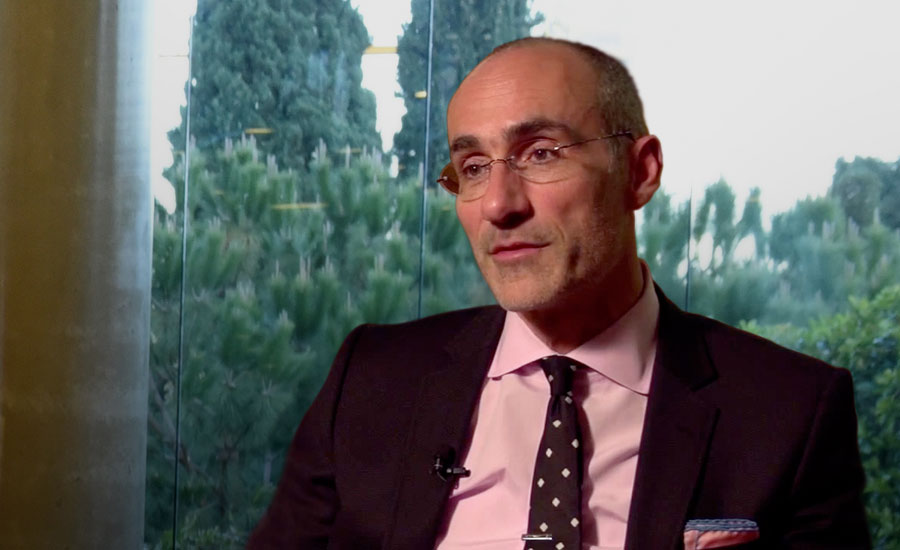Stories
5 Keys to Successful Leadership and Personal Happiness
American Enterprise Institute's Arthur Brooks urges future leaders to examine the "why" behind what they will do
May 19, 2017

Given this unusual moment in politics and economics around the world, the crucial role of a leader is more evident than ever. How to be an effective leader, what makes a leader and how to improve leadership abilities are questions clearly on the table.
Arthur Brooks, president of the American Enterprise Institute and a best-selling author, shared personal insights on what lies at the root of good and much-needed leadership, during a visit to the Barcelona campus. With the auditorium full of MBA students, Brooks spoke directly and sincerely, recognizing them as the future leaders of tomorrow.
“Everyone asks ‘What do you do?’ which is really ‘What do you do for money?’ But the real question, the important one is: ‘Why do you do it?’” he said. “You have to know the answer to the important question or you won’t be able to do what you’re supposed to do and the answer will be decided for you.”
The head of the conservative think tank emphasized the place of service towards others in the mission of an authentic and successful leader and in personal happiness. “The purpose of your work is to serve others. As business leaders, you are going to pull people out of poverty. That’s important.”
The MBAs will have to decide whether they become leaders who bring people together or leaders who divide people, Brooks said.
Confident that the MBAs would seek to unite people around a common, aspirational purpose, he offered five keys to becoming a better leader:
- Learn to Tell a Story and Practice It EndlesslyBrooks recognized that this could seem like nonsense. However, backing his argument with research from Princeton Neuroscience Institute’s Uri Hasson, he said telling a good story at the beginning of a meeting or presentation has the ability to synchronize the listeners’ brainwaves with the storytellers. “Do you want to unite people around a common purpose? You must tell a story about people,” he said. If you tell the story successfully, before it’s over the listeners’ brains will be predicting plausible endings, illustrating that, if you want to lead people to places you haven’t been, “you do it with stories”.For this to work, Brooks identified five ingredients for every story: simplicity (avoiding complexity and unnecessary details), emotion (including humor, pain or joy), truth (the speaker must believe what he or she is saying), reality (that the speaker was there) and validity (that it works with every audience).
- Be NiceContrary to the infamous quote “nice guys finish last”, Brooks said being nice is essential in impactful leadership. Studies have shown that people are drawn to friendly individuals. “Great leaders fight contempt and bitterness by personally modeling warm-heartedness. Kindness and compassion are not for weak people. They are for leaders. Weak people can’t do it,” he said. Being genuinely nice is a challenge worth striving for and it’s this “change of your own heart that can change a poisonous environment around you”.
- Smile
“You own your moods. As leaders, you cannot be a slave to them,” Brooks said. “If you are stressed out, you cant bring that to the office.” In a study, when participants were asked to rate the effectiveness of two team leaders, the non-smiling team leader was perceived to be only one-third as effective as the one who smiled, although they had said the exact same thing. “Nobody wants to work for someone who doesn’t smile,” Brooks said. - Avoid AngerGetting mad will prevent you from being kind, he said. “Anger neurologically turns-off your kindness. So, avoiding it is essentially a way to keep on your kindness switch,” he said.
- Express Gratitude“Say ‘thank you’. You defeat your enemies when you make them your friends,” Brooks said. “This is your secret weapon. If you learn this, you’ll have a leg-up. And you’re going to have virtuous and earned success.”Gratitude also helps you on a personal level. “Realizing and expressing your gratitude to those around you is the key to success. And your personal happiness.”


